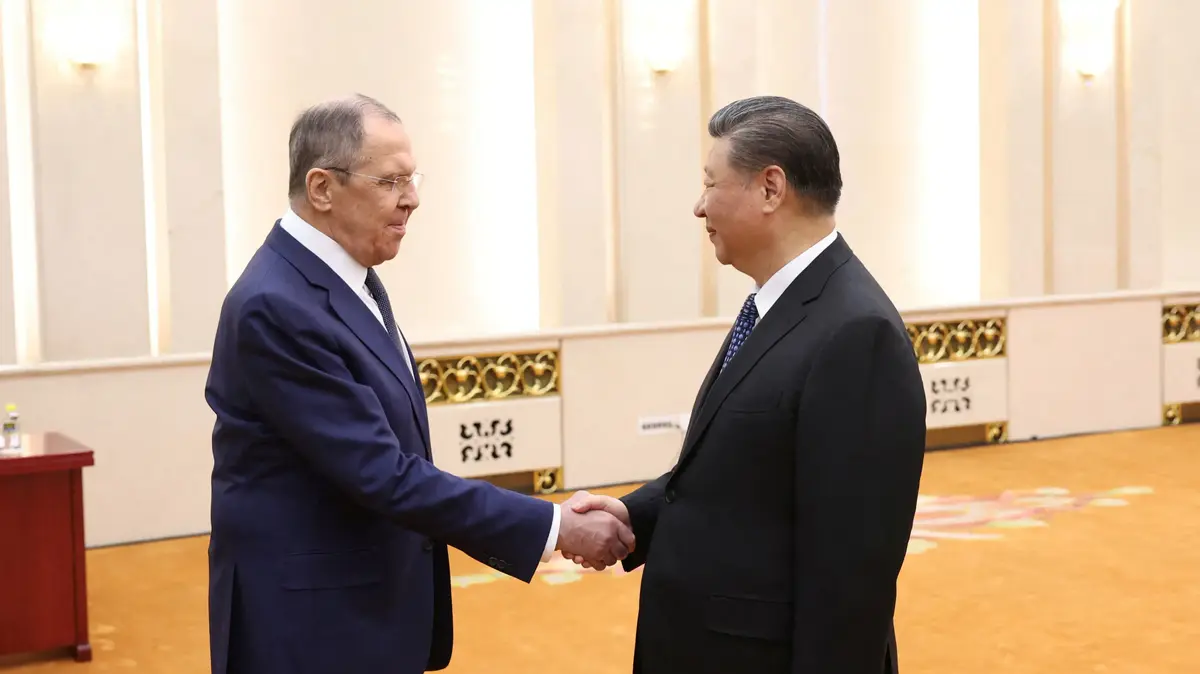So I guess we're in a new cold war.
Leaders of both parties have become China hawks.
There are rumors of war over
Taiwan.
US President Joe Biden meets with Chinese President Xi Jinping on the sidelines of the G20 leaders' summit in Bali, Indonesia November 14, 2022. REUTERS/Kevin Lamarque/File Photo
Xi Jinping
vows to rule the century.
I can't help but wonder:
What will this cold war be like?
Will it transform American society as the previous one did?
The first thing I notice in this cold war is that the arms race and the economic race are fused together.
Until now, one of the main focuses of the conflict has been microchips, the little gadgets that not only power your car and phone, but also guide missiles and are needed to train artificial intelligence systems.
Whoever dominates chip manufacturing will dominate the market and the battlefield.
Second, geopolitics is different.
As Chris Miller points out in his book "Chip War," the microchip industry is dominated by a few highly successful companies.
More than 90% of the most advanced chips are made by a company in Taiwan.
A Dutch company manufactures all the lithographic machines needed to build state-of-the-art chips.
Two Santa Clara, California, companies monopolize the design of graphics processing units, critical to running AI applications in data centers.
These choke points represent an intolerable situation for China.
If the West can block China's access to cutting-edge technology, then it can block China.
So China's intention is to move closer to
self-sufficiency in chips
.
The US intention is to be more self-sufficient than now and create a global chip alliance that excludes China.
American foreign policy has been rapidly reorganizing in this regard.
During the past two administrations, the United States has moved aggressively to prevent China from obtaining the software technology and equipment it needs to build the most advanced chips.
The Biden administration is shutting down not just Chinese military companies, but all Chinese companies.
This seems like a common sense safeguard, but put another way, it's dramatic:
The official policy of the United States is to make a nation of nearly one and a half billion people poorer.
It amazes me even more how the new cold war is reshaping domestic politics.
There have always been Americans, since Alexander Hamilton's Report on Manufacturing Industry in 1791, who have supported industrial policy, that is, using government to strengthen private economic sectors.
But this approach to governance has generally been marginal.
It is now at the center of American politics, both when it comes to green technology and chips.
Last year, Congress passed the CHIP Act, with $52 billion in grants, tax credits and other subsidies to encourage US chip production.
It's an industrial policy that would have Hamilton gawping and applauding.
In the coming years and decades, China is going to invest huge amounts of money in its own industrial policy programs, in a whole host of cutting-edge technologies.
An analyst at the Center for Strategic and International Studies estimates that China already spends more than
12 times more
of its gross domestic product on industrial programs than the United States.
In the coming years, US leaders will have to figure out how effective that spending is and how to respond.
Even more than the last cold war, this one will be fought by technological elites.
Both sides are likely to spend a lot of money on their more educated citizens, a dangerous situation at a time of populist resentments.
You can already start to see a new set of political fissures.
At the center are the kind of neo-Hamiltonians who supported CHIPs - including the Biden administration and the 17 non-Trumpy Republicans who voted with Democrats for the bill in the Senate.
On the right, there are already a number of populists who are super hawkish on China when it comes to military issues, but don't believe in industrial policy.
Why spend all that money on the elites?
What makes you think that the government is smarter than the market?
On the left are those who want to use industrial policy to serve progressive goals.
The Biden administration has issued an incredible number of diktats for businesses that receive aid from the CHIPs Act.
These diktats would force companies to behave in ways that serve a number of progressive, alien priorities: child care policy, increased unionization, environmental goals, racial justice, and so on.
Instead of being a show focused on pushing French fries, it aims to be everything at once.
One would expect that as the cold war environment intensifies, our politics will become more serious.
When Americans went to the polls during the last cold war, they realized that their vote could be a matter of life and death.
It may be like this again.
Ruling during this era will require extraordinary levels of seasoned statesmanship:
run industrial programs that don't balloon, partially deglobalize the economy without triggering trade wars, consistently outperform China without humiliating it.
If China realizes that it is falling further behind each year, the
invasion of Taiwan
may be more imminent.
Miller was asked what the chances were that in the next five years a
dangerous military confrontation
between the United States and China would produce an economic crisis equivalent to the Great Depression.
He estimated them at 20%.
That seems high enough to focus the mind.
c.2023 The New York Times Company
look too
Xi Jinping in Russia: a visit that destroys any peace attempt in Ukraine
Why China and Russia are closer than ever







/cloudfront-eu-central-1.images.arcpublishing.com/prisa/DH2SXR3OWJG27DGCQVSC5AQDNE.png)

